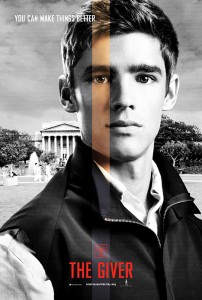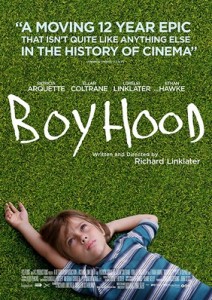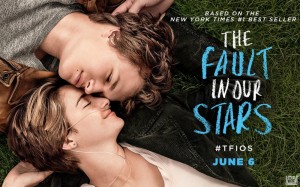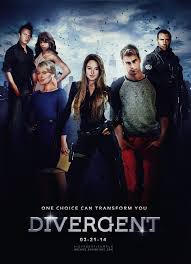If I Stay
Posted on August 21, 2014 at 6:00 pm
B| Lowest Recommended Age: | Middle School |
| MPAA Rating: | Rated PG-13 for thematic elements and some sexual material |
| Profanity: | Some strong language |
| Alcohol/ Drugs: | Drinking, including teen drinking |
| Violence/ Scariness: | The film's themes include a tragic accident, characters injured and killed |
| Diversity Issues: | None |
| Date Released to Theaters: | August 22, 2014 |
| Date Released to DVD: | November 17, 2014 |
| Amazon.com ASIN: | B00NT964VS |

Hamlet asked it best. “To be, or not to be: That is the question.” We struggle through, worrying about whether someone likes us or whether we will be accepted at the school of our choice. Those seem like serious problems. And then something really huge shows us how small those problems are, and forces us to confront the only question that matters: will we continue to “suffer the slings and arrows of outrageous fortune” or will we obliterate ourselves, and everything we can perceive?
That is the question faced by a young cellist named Mia (Chloë Grace Moretz, in one of her first roles as a normal girl). She has a wonderful family, loving, supportive, understanding and remarkably hip and gorgeous parents (Mireille Enos as Kat and Joshua Leonard as Denny) and a not-too-pesky kid brother named Teddy (Jakob Davies). She has the kind of kindred spirit best friend who is always vitally interested in every detail and always on her side (“Trust’s” terrific Liana Liberato). And they are a part of a warm, loving community in Portland, Oregon that seems like an endless pot luck dinner party, seamlessly blending from one time and place to another, always filled with laughter and music.
And there is Adam (Jamie Blackley). He is the perfect combination of untamed/angsty and utterly devoted swain. He is supposedly a punk musician, though his performances are disconcertingly pop-ish with even a bit of emo. And he says swoon-worthy things like, “You can’t hide in that rehearsal room forever. It’s too late. I see you.” Mia feels like an outsider as a classical cellist in a family of rock musicians. And, of course, she attends high school with teenagers who have no interest in orchestral music. “Right on, I love classic rock,” one of them responds when Mia tries to explain the kind of music she plays.
Adam watches Mia rehearse and instantly sees that in the most important way she is just like him. She is someone who is not just moved by music, but saved by it. She says, “I loved the order, the structure, that feeling in my chest. Like my heart is beating with the cello.” The “whole messy live for the moment punk rocker thing” does not feel right to her.
Soon Adam and Mia are a couple. But then his group becomes successful and he starts to tour. And she may have a chance to go to Juilliard, on the other side of the country.
And then there is the accident. Mia’s family takes advantage of a snow day to go off on an excursion together, but a car slips on the ice and there is a very bad crash. The entire story is told as Mia’s spirit, alone in the limbo between life and death, able to see and hear everyone around her but not able to be seen or heard, is remembering her life, beginning to understand what has happened, and recognizing that it is up to her to decide whether to re-enter her body and fight to stay alive.
Gayle Forman‘s book is thoughtfully adapted by Shauna Cross (“Whip It”), who has a good sense of the inner lives of teenage girls. While Adam and Mia have their struggles, they are thankfully a step above the typical teenage drama (on and off-screen), and almost always respectfully handled and based in character and context and not the usual sitcom-ish miscommunication. Moritz takes on a tough challenge in playing a character who has to express so much anxiety with so little interaction with other actors, except in flashbacks. She does well, as does director R.J. Cutler in keeping an internal story visually engaging. If it doesn’t have the emotional impact of recent YA weepies like “The Spectacular Now” and “The Fault in Our Stars,” it is a touching story about an appealing young couple.
Parents should know that this film has literal life-and-death situations, with a serious accident, and characters injured and killed. It also includes strong language, teen drinking, and non-explicit sexual references and situations.
Family discussion: How did their families influence the different ways Adam and Mia saw their options? Why did Mia’s grandfather tell her she could go? What would you decide and why?
If you like this, try: “The Spectacular Now,” “Save the Last Dance,” and “Bandslam” as well as the book by Gayle Forman and its sequel, told from Adam’s perspective, Where She Went




